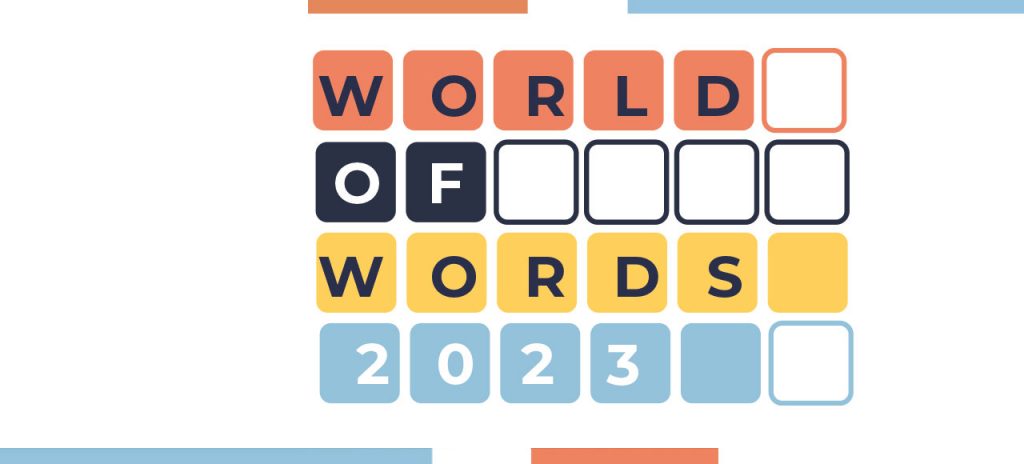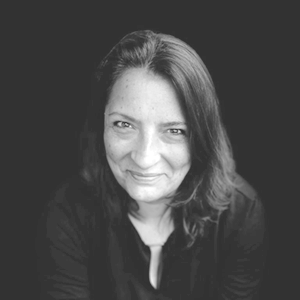What are they for 2023 and why do they matter?
The standout word
Has anyone ever told you you’ve got great rizz? Or have you ever rizzed someone up?
You may well have experienced the power of ‘rizz’ in abundance but it’s unlikely that you would have used this word to describe it. Before now that is. The Oxford University Press (OUP) has chosen ‘rizz’ as its ‘word of the year’ (WOTY) for 2023 and they define it as ‘style, charm, or attractiveness; the ability to attract a romantic or sexual partner’. It can also be used as a verb as in ‘to rizz up’ and in this case would mean ‘to attract, seduce, or chat up (a person).’ The OUP points out that when nouns morph into verbs like this (verbing or ‘denominalization’), it often signals a broadening of their usage.
A very quick survey of friends and family revealed that knowing what ‘rizz’ meant was often linked to age. Younger generations and principally those born after the turn of the century were more likely to have come across ‘rizz,’ particularly if they watched YouTube. Older age groups had no idea what it meant, including a professor of English Literature at a renowned UK university!
But just because some of us aren’t familiar with a word or expression doesn’t mean it’s not in common usage elsewhere. The OUP had over 30,000 responses to its request asking people to help narrow down its original shortlist of 8 words. Its language experts then took the public vote, comments and corpus data into consideration to decide on the winner. It’s inevitable that as we get older we’re not so In tune with the vocabulary of younger people and historically this has always been remarked on, with older folks often lamenting a perceived decline of ‘proper’ English use by teenagers or twenty-somethings.
Language is always in a state of flux
There’s nothing more certain than the fact that language will change and whatever we do, it won’t stand still. Talking about the ‘words of the year’ is perhaps one way of how we make sense of both language evolution and its relation to the changing world around us.
Other ‘WOTY’ choices this year reflect the increasing presence of technology and artificial intelligence (AI) in our lives. Dictionary.com’s word of 2023 is ‘hallucinate’, a term that relates to the capacity of large language models (LLMs) to invent facts and then present them as if they are true. It’s a word we’ve become very familiar with here in the language industry as we learn about LLMs and how they could help us augment our workflows. Significantly, the use of ‘hallucinate’ has grown this year as people start to understand the limitations of AI technology.
The Cambridge Dictionary also decided that ‘hallucinate’ was its ‘word of the year’ and other selections similarly mirror the rising impact of AI on our societies. Merriam Webster chose ‘authentic’ as 2023’s most significant term, stating that the rise of ‘authentic’ was ‘driven by stories and conversations about AI, celebrity culture, identity, and social media.’
‘AI’ was the logical choice for the Collins Dictionary, fittingly taking the shorthand form of ‘artificial intelligence’ which is now common parlance. Other contenders on the technology theme included ‘prompt’ and ‘deepfake.’
Around the world
It’s not just English-speaking countries that have a penchant for naming ‘words of the year’. In Japan the kanji character for ‘tax’ was chosen to represent 2023 after a poll conducted by the Japan Kanji Aptitude Testing Foundation solicited over 147,000 contributions. Tax has been a hot topic in the country of late with planned rises a national preoccupation. Close contenders were the characters for ‘heat’ and ‘war’, both reflecting wider, global concerns.
The economic situation was also on the minds of the linguists of the German Language Association when they decided that ‘krisenmodus’ or ‘crisis mode’ was the term that best represented the mood of 2023 in Germany. ‘Permacrisis’ was of course, a ‘WOTY’ in 2022 for English language dictionary Collins, suggesting that the UK had felt the full force of multiple negative events at an earlier date.
On a welcome lighter note, the Australian National Dictionary Centre opted for ‘Matilda’ as its ‘WOTY’ in honour of the inspirational women’s national soccer team who are nicknamed the ’Matildas’ and who performed so well at the World Cup. This choice symbolized the growing popularity of women’s sport and the feelgood factor the team helped spread across Australia during the tournament.
Elsewhere The Associated Press (AP) asked their colleagues across the globe what they considered to be the words that best summed up the year in the countries they were reporting from. In Kenya the Kiswahili word put forward was ‘Kitawaramba’, meaning ‘it will come back to haunt you’. This was pronounced by alleged leader of a doomsday cult, pastor Paul Mackenzie, as he was arrested, but soon came to have a broader interpretation in the African country and is now commonly used in other contexts.
Other picks were from South Africa, ‘Kuningi’ the isiZulu word meaning ‘it’s a lot’, from India ‘Bharat’ the word for ‘India’ in Sanskrit and in Taiwan the Mandarin characters for ‘roadmonkey’ which became a way to refer to the economic pressures on younger generations.
Behind the words
It would be easy to dismiss the ‘WOTY’ phenomenon as just fodder for frivolous media content or cheap publicity for the organizations involved, but words and language matter and it is what these words echo that is important.
The flourishing presence of technology in all our lives is evident from many of the words selected. The theme of artificial intelligence dominates, and even if its immediate meaning isn’t linked to AI, the origins of ‘rizz’ still connect to the digital world. The words reflect our efforts to understand and integrate AI technology into our societies and how we’re concerned about its future effects.
Globally these words show what unites us and what makes us different. Widespread economic difficulties are well represented in the words selected for 2023, but other choices also illustrate the trends, moods and current obsessions of individual countries and cultures. They highlight our diversity and our universality.
Choosing ‘words of the year’ gives us a small representation of what makes us human – our fears, emotions and originality. They show humanity’s boundless creativity to describe what we feel and experience and our endless quest for understanding.
Language is one of the elements that makes us human. What better way to sum up a year than by using words.

